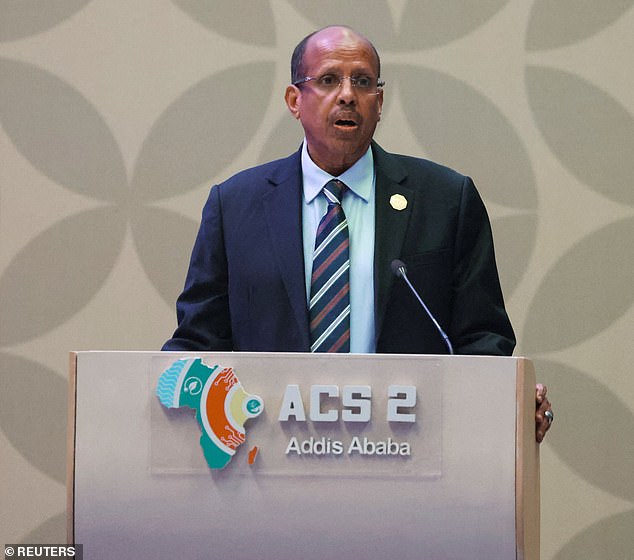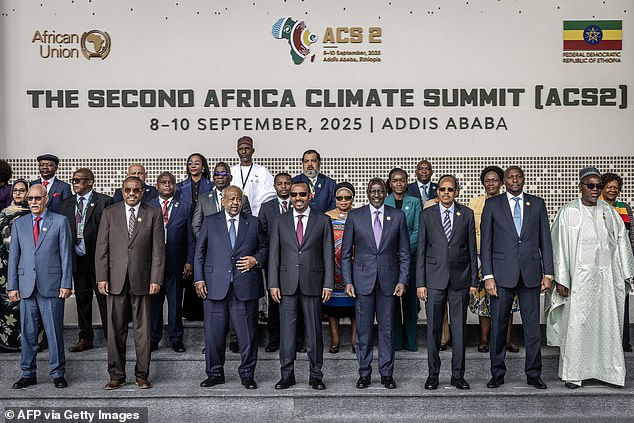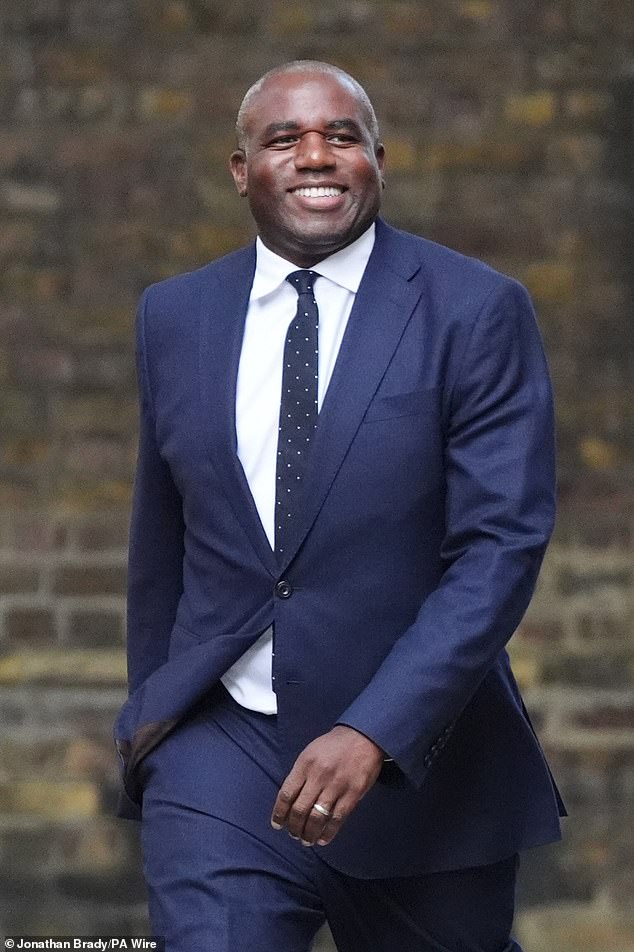Africa has officially joined the push to demand reparations from Britain and other former colonial powers for ‘historic crimes’, including slavery and imperialism.
The African Union, which represents all 55 nations on the continent, has called for ‘meaningful reparations’ from European powers for exploiting Africa’s people, land and resources and blamed colonialism for ongoing ‘systemic injustice’ across the region.
At a joint summit in Addis Ababa with Caribbean leaders, the bloc said it would team up with countries across the Atlantic to seek compensation and what it called ‘reparatory justice’.
Mahamoud Ali Youssouf, the Djiboutian politician heading up the African Union Commission, said the two regions would now work together to ‘honour our ancestors, to uplift our descendants and reclaim our shared destiny in freedom, justice and unity’.
It comes as Caribbean nations – under the Caricom alliance of 15 states – have already demanded trillions in compensation for slavery. Now African leaders are expected to draw up their own list of demands.
Britain, which at the height of its empire controlled a quarter of Africa, could find itself facing fresh claims – not just for its involvement in the slave trade, but for the broader impact of colonialism and what has been described as ongoing ‘structural and systemic injustice’.
Reparations are now being framed more broadly, not only in terms of slavery, but also the return of cultural artefacts, reforms to global economic systems, and compensation for climate change impacts.
Leaders argue that the industrialised nations of the ‘Global North’ bear historical responsibility for environmental degradation.

Mahamoud Ali Youssouf, the Djiboutian politician heading up the African Union Commission, said the two regions would now work together to ‘honour our ancestors, to uplift our descendants and reclaim our shared destiny in freedom, justice and unity’

Djibouti’s President Ismail Omar Guelleh (3rd L), Ethiopia’s Prime Minister Abiy Ahmed (4th L), Kenya’s President William Ruto (4th R) and African Union Commission Chairperson Mahmoud Ali Youssouf (3rd R) pose for a group photo with other African heads of state and government representatives
Former colonial powers that could face pressure include Britain, France, Spain, Portugal, Belgium and Germany – all of which carved up Africa by the late 19th century.
The push follows years of talks between Caribbean and African leaders, which began in earnest in 2023. Officials hope the two regions can present a united front and force governments and institutions to confront the past.
While Caricom has already submitted a formal ’10-point plan’ to former colonisers, including demands for financial payments, formal apologies, debt relief, and investment in education and development, no country has yet agreed to pay.
Grenada has directly petitioned the Bank of England, which once owned a plantation on the island, while Jamaica has considered asking King Charles to address the issue as the country’s constitutional monarch.
In the UK, hopes that a Labour government might take a softer stance have been dashed.
While David Lammy was expected to host a Caricom reparations forum as Foreign Secretary, the event was delayed due to the Israel-Iran conflict. Prime Minister Sir Keir Starmer has, like his predecessors, rejected reparations.

While David Lammy was expected to host a Caricom reparations forum as Foreign Secretary, the event was delayed due to the Israel-Iran conflict
France and other European governments have also refused to offer compensation. Some Caribbean countries are now shifting tactics by targeting institutions like banks and universities instead of governments.
Meanwhile, the African Union, which has declared this the ‘Year of Reparations’, is still in the early stages of drafting its own claims.
One branch of the AU has been working on the issue for around eight months, although insiders say progress has been slow and no official policies have yet been finalised.
Still, experts advising the bloc have insisted that returning stolen African artefacts is a ‘step toward cultural restoration and healing’.
Several British museums have already begun returning items such as the Benin Bronzes, Ashanti gold and sacred Ethiopian objects, though often only temporarily.












